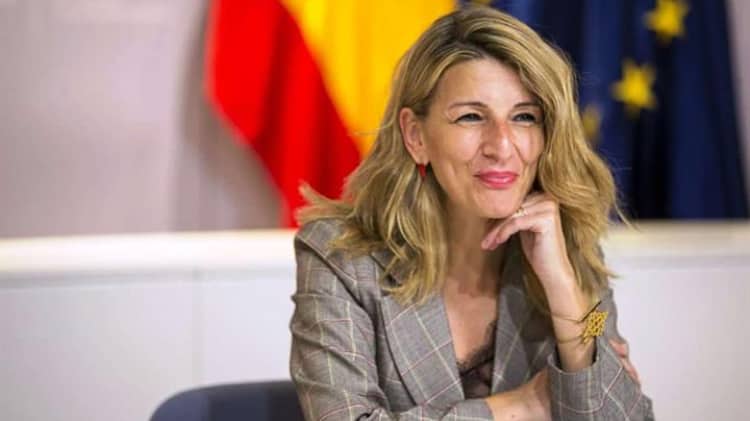The Diplomat
The declarations of the Vice-President of the Government and promoter of the Sumar project, Yolanda Díaz, in which she referred to Morocco as “a dictatorship” were rejected yesterday by the spokesperson of the PSOE and Minister of Education, Pilar Alegría, which shows once again the existing differences within the Government on the Saharawi question.
Alegría assured that Yolanda Díaz’s position on this matter is “a personal position”, but not the position of the PSOE or the Executive.
In the same vein, from Strasbourg, the Minister of Foreign Affairs, José Manuel Albares, also pointed out that the vice-president’s statements are “individual opinions” and that Spain’s position is set out in the high-level declarations with Rabat.
Alegría and Albares thus overruled their colleague in the cabinet, who is part of the Unidas Podemos quota, and who in an interview broadcast last Sunday on La Sexta, clearly disassociated herself from the turn taken by the president of the government, Pedro Sánchez, with regard to the Western Sahara dispute.
Asked by the interviewer, Jordi Évole, whether she would reverse Sánchez’s U-turn by supporting the Sahrawi territory as an autonomous province within Morocco, instead of defending the right of its people to determine their future through a negotiated solution as Spain had traditionally maintained, Díaz’s response was: “Without a doubt. I have a very clear position’.
The vice-president added that “of course we have to take our neighbour seriously” and that she herself is in charge of signing bilateral work contracts, such as the one that has recently made the 16,000 workers in the strawberry campaign in Huelva permanent. And she stressed: “I work with Morocco every day, it is our southern border. Now, Morocco is what it is”. And when the journalist asked him “what is it?”, she answered categorically: “A dictatorship”.
In the entourage of the head of the Executive and the PSOE, the vice-president’s words have not gone down well, and the person in charge of highlighting this was Pilar Alegría, who stated that relations with Rabat “have been made very clear in the road map of the Spanish-Moroccan declaration of 7 April last year and more recently with the holding of the High Level Meeting, which covers very important issues for both countries”.
Socialist sources insist that relations with Morocco are complex and believe that they should not be put at risk, among other reasons because important issues such as the control of illegal immigration or economic exchanges depend on good harmony.
In any case, Yolanda Díaz’s position, which once again brings to light the differences between the two souls of Pedro Sánchez’s coalition government, has not caused surprise, because it was already evident when at the Spanish-Moroccan summit at the beginning of February, no member of the United Podemos government was part of the Spanish delegation.
Although Moncloa tried to justify the fact that the ministers from Unidas Podemos were not present, arguing that the main issues to be discussed, such as immigration, security and Spain’s presence in North Africa, were matters that PSOE ministers were dealing with, the truth is that Yolanda Díaz explained that their absence was a “political decision”.
UN Podemos is in favour of a referendum in the Sahara, something that does not figure in the PSOE’s main objective, after Sánchez abandoned the neutrality of 40 years and described Morocco’s proposal, which offers autonomy for the territory, but not independence, as “the most serious, credible and reasonable”.







